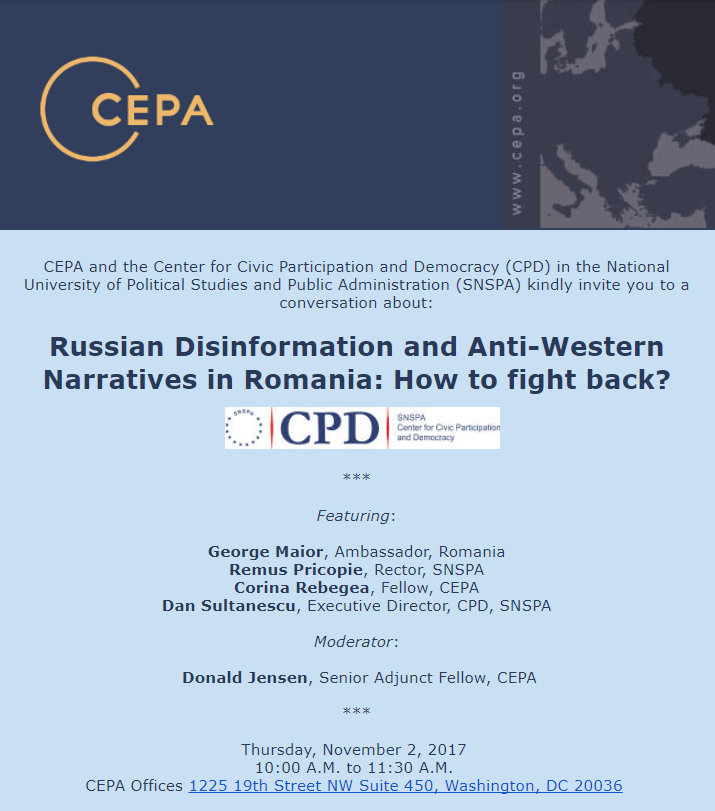About the event
Center for Civic Participation and Democracy (CPD) and Center for European Policy Analysis (CEPA) organize a discussion about: Russian Disinformation and Anti-Western Narratives in Romania: How to fight back?
The event takes place on Thursday, November 2, 2017, in Washington DC and it is part of the collaboration between the National School of Political Science and Public Administration (SNSPA) and the US academic and nongovernmental environment.
Featuring:
George Maior, Ambassador, Romania
Remus Pricopie, Rector, SNSPA
Corina Rebegea, Fellow, CEPA
Dan Sultănescu, Executive Director, CPD, SNSPA
Moderator:
Donald Jensen, Senior Adjunct Fellow, CEPA
Russia’s use of hybrid warfare techniques against the West poses a new range of challenges to transatlantic security. Often missing in expert discussions on the complexities of combined security threats is Russia’s employment of targeted, politically-divisive narratives across Europe. While this danger holds true for all NATO allies, analysts and policymakers are increasingly looking for tools to evaluate the nature of the disinformation threat and to counteract its corrosive effects. Here, the case of Romania could provide useful insights.
Seemingly insulated by geography, language differences, and alliance structures, Romania might appear to be an unlikely target for Russia. Nevertheless, pro-Kremlin narratives have intensified in the wake of high-profile NATO exercises and an increased U.S. military presence in the country. Contentious narratives propagated throughout Romania advance the Kremlin’s geopolitical agenda, particularly among younger audiences whose media diets consist of online press and social networks.
Considering these, the discussion will try to provide answers to a series of questions such as:
What types of narratives and tools the does Kremlin deploy in Romania?
How can we track and evaluate the impact of Russian disinformation?
What technologies and instruments are at our disposal for identifying and debunking fake narratives?
How do we field a common, regional approach to combating Russian-led disinformation?
CEPA is a prestigious American think-tank dedicated to the study of Central and Eastern Europe (CEE). Through cogent analysis and effective relationships, CEPA programs have helped to strengthen US-CEE relations. CEPA was founded and directed by Wess Mitchell, Assistant Secretary of State for Europe and Eurasia.
